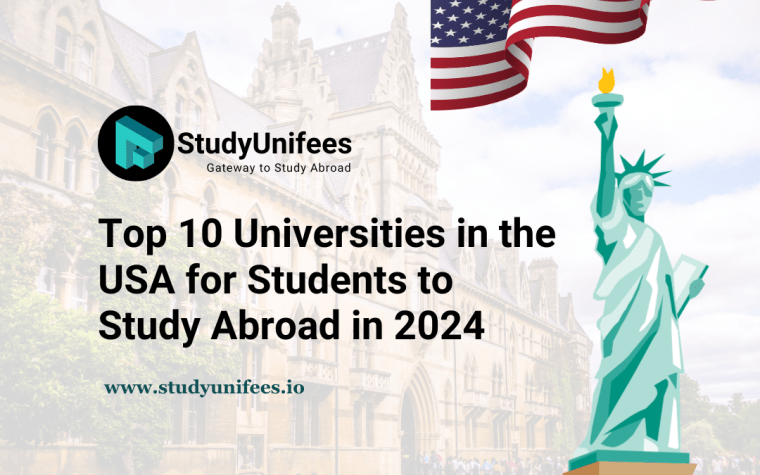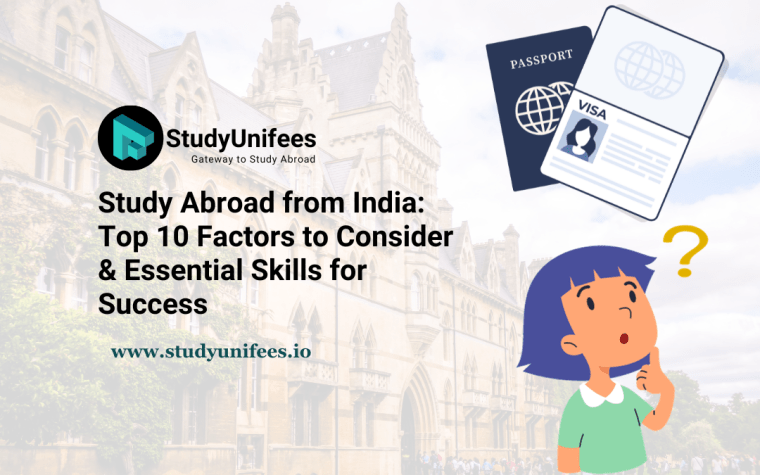Are you considering studying in the UK in 2024? The UK boasts some of the world’s most prestigious universities, offering a diverse range of courses and research opportunities. Studying abroad in the UK remains a prestigious and transformative experience for students worldwide. As we look ahead to 2024, here’s a comprehensive guide to the top 10 universities in the UK, based on recent rankings.
In this article, we explore the top 10 universities in the UK based on recent rankings to help you make an informed choice for your study abroad journey.
1. University of Oxford, Oxford – World University 2024 Rank: 1
Oxford, the oldest university in the English-speaking world, continues to top global rankings with its outstanding academic reputation, distinguished faculty, and rich history.
The University of Oxford, a name synonymous with academic excellence and historic significance, stands as one of the oldest universities in the English-speaking world. With its origins tracing back to the 12th century, Oxford has evolved from a medieval learning hub into a modern-day beacon of knowledge and research. Its collegiate system, a hallmark feature, fosters a unique environment of intellectual growth and community spirit.
Opting to study abroad at the University of Oxford presents a plethora of benefits and opportunities for students worldwide. Firstly, the academic rigor and quality of education at Oxford are unparalleled. Students gain access to world-class faculty, diverse course offerings, and cutting-edge research facilities. The university’s tutorial system is a distinctive feature, offering personalized and intensive academic guidance, which significantly enhances learning outcomes. Additionally, studying at Oxford means joining a global network of alumni, an invaluable asset for career advancement and professional networking. The cultural experience of living in Oxford, a city steeped in history and academic tradition, is equally enriching. Students not only immerse themselves in an environment that nurtures intellectual curiosity but also engage with a vibrant international community, fostering cultural exchange and personal growth. Oxford’s commitment to fostering a diverse and inclusive student body makes it an attractive destination for students seeking a transformative educational experience abroad.
2. University of Cambridge, Cambridge – World University 2024 Rank: 5
Cambridge is renowned for its excellence in education, research, and innovation. It’s a hub for students seeking world-class education in a historically rich environment.
Choosing the University of Cambridge for studying abroad is an opportunity for students to engage with an institution that is synonymous with academic prestige and groundbreaking research. Cambridge’s rigorous academic environment challenges and inspires students, offering courses that are both traditional and innovative, guided by eminent scholars in their fields. The university’s commitment to excellence in research, teaching, and community engagement makes it a top choice for students seeking a transformative educational journey abroad. With a degree from Cambridge, students are well-equipped for success in an increasingly competitive and interconnected world.
3. Imperial College London, London – World University 2024 Rank: 8
Imperial College London excels in science, engineering, medicine, and business. It is known for its research output and strong industry connections. Imperial College London, established in 1907, marks its prominence as one of the UK’s leading institutions, especially in the fields of science, technology, engineering, and medicine. Imperial College London is an exceptional choice for students looking to study abroad, particularly those inclined towards STEM disciplines. One of the key benefits of studying at Imperial is its relentless focus on cutting-edge research and technological innovation.
4. UCL (University College London), London – World University 2024 Rank: 22
UCL offers a wide range of disciplines, with a focus on research-led teaching. It’s situated in the heart of London, providing students with immense cultural and professional opportunities. For students considering studying abroad, UCL (University College London) offers a multitude of benefits that make it an attractive choice. First and foremost, UCL’s academic reputation is world-renowned, with a strong emphasis on research-led teaching, ensuring that students are learning at the cutting edge of their field. The university offers a wide array of programs, allowing students to tailor their education to their interests and career aspirations.
5. University of Edinburgh, Edinburgh – World University 2024 Rank: =30
The University of Edinburgh is famous for its research-driven courses and historical significance. It offers a vibrant student life in Scotland’s capital. The University of Edinburgh, founded in 1582, is one of Scotland’s most prestigious and historic universities, renowned for its rich legacy in education and research. It is a part of the esteemed Russell Group, known for its research-intensive universities. The University has played a pivotal role in shaping Edinburgh into a city of learning and culture, often referred to as the “Athens of the North.
For students looking to study abroad, the University of Edinburgh presents an attractive proposition for several reasons. First, its academic reputation is exemplary, with a wide range of highly-ranked programs in arts, humanities, sciences, and social sciences. The university’s teaching methodology, which emphasizes critical thinking and independent research, equips students with skills that are highly valued in the global job market. Edinburgh as a city offers a unique blend of historical charm and contemporary vibrancy, providing an enriching backdrop for student life.
6. King’s College London, London – World University 2024 Rank: =38
King’s College London is well-known for its courses in law, humanities, and sciences. Its central location in London offers students an enriching educational experience. King’s College London, established in 1829, is distinguished as one of the oldest and most prestigious universities in England. Renowned for its foundational role in the University of London, King’s has a rich history intertwined with the development of the British education system. Located in the heart of London, the university is celebrated for its impactful contributions in a wide range of disciplines, from law and medicine to arts and humanities.
King’s commitment to fostering a supportive and inclusive environment ensures that students from all backgrounds find a welcoming community. The university’s focus on developing global leaders is evident in its curriculum, which often incorporates international perspectives and real-world problem-solving. For students aspiring to excel in their academic and professional lives, King’s College London offers a dynamic and enriching platform, blending academic excellence with real-world relevance in one of the world’s most vibrant cities.
7. London School of Economics and Political Science (LSE), London – World University 2024 Rank: 46
LSE is globally recognized for its social sciences courses. It boasts a diverse student body and strong links to global policy and business leaders. The London School of Economics and Political Science (LSE), established in 1895, stands as a global beacon in the fields of economics, political science, sociology, law, and related disciplines.
For students contemplating an international education in economics, political science, or related social sciences, the London School of Economics and Political Science (LSE) presents an unparalleled opportunity. LSE’s reputation as a leader in these fields means students receive an education that is not just academically rigorous but also closely aligned with real-world issues and developments. The university’s focus on empirical research, critical analysis, and a multidisciplinary approach provides students with a comprehensive understanding of the complex challenges facing today’s world.
8. University of Manchester, Manchester – World University 2024 Rank: 51
The University of Manchester is renowned for its research impact and innovative teaching methods. It offers a diverse range of courses in a dynamic city.
The University of Manchester, with its roots tracing back to 1824, has established itself as a prominent institution in the UK and globally. It was formed in 2004 through the merger of two esteemed institutions: the Victoria University of Manchester and the University of Manchester Institute of Science and Technology (UMIST). This fusion created a university with a rich heritage and a forward-looking approach. The University of Manchester is renowned for its contributions to science and engineering, particularly noted for its role in the development of the first modern computer and the isolation of graphene, a groundbreaking material.
9.University of Bristol, Bristol – World University 2024 Rank: 81
Bristol offers a high-quality education with strong research opportunities. It’s known for its vibrant student life and beautiful city. Founded in 1876, the University of Bristol, nestled in the heart of Bristol, England, stands as a beacon of academic excellence and innovation. This prestigious institution, renowned for its rich history, has been a trailblazer in higher education, attracting students from across the globe. Its diverse and vibrant community offers an enriching environment for students seeking a world-class education. The University of Bristol is not just a place to learn; it’s a hub for personal and professional growth. With state-of-the-art facilities and a strong emphasis on research, students have the unique opportunity to engage in cutting-edge studies, guided by some of the world’s most distinguished scholars.
The university’s strong industry links and emphasis on employability ensure that graduates are well-equipped to excel in their chosen fields. Furthermore, the university’s prime location in Bristol, a city known for its creativity and cultural heritage, provides an unforgettable experience beyond the classroom. Choosing the University of Bristol means joining a legacy of scholars who have made significant contributions to society, a compelling reason for students worldwide to consider it as their destination for studying abroad.
10. University of Glasgow, Glasgow – World University 2024 Rank: =87
The University of Glasgow combines tradition with modern teaching. It’s an ideal choice for students seeking a comprehensive educational experience. Established in 1451, the University of Glasgow is one of the oldest and most prestigious universities in the world, offering a unique blend of historical grandeur and contemporary innovation. As a member of the esteemed Russell Group, it is renowned for its world-leading research, academic rigor, and a rich tapestry of cultural heritage. The university’s sprawling, picturesque campus is not only an architectural marvel but also a thriving hub of intellectual activity, drawing students from every corner of the globe. At Glasgow, students benefit from a diverse range of study options, state-of-the-art facilities, and an inclusive, supportive community.
The university is dedicated to providing an outstanding learning experience, evidenced by its high student satisfaction rates and strong focus on employability. Glasgow’s strategic partnerships with industries and international institutions further enhance the academic journey, offering students unparalleled opportunities for research, internships, and global exposure. Beyond academics, the vibrant city of Glasgow offers a lively cultural scene, rich in arts, music, and history, making it an ideal destination for students seeking a holistic educational experience abroad. The University of Glasgow is not just a place to study; it’s a gateway to a world of possibilities, making it a top choice for students aiming to make their mark on the global stage.
In Summary, These universities represent the pinnacle of academic excellence in the UK. Choosing any of these institutions will open doors to world-class education and opportunities.
Study Unifees – Your Gateway to UK Education
Considering the complexities of studying abroad, you might feel overwhelmed. This is where Study Unifees steps in. We provide expert guidance for your study visa application, UK university admission, and study abroad consulting. With Study Unifees, your journey to a UK university becomes seamless and well-informed.
Book a Free Counselling Session Learn More about Studying in the UK
About Study Unifees
Founded in 2021, Study Unifees has rapidly become a leading portal for students aspiring to study abroad. The company offers a range of essential services, including career counseling, profile evaluation, visa assistance, and various payment options. With over 18 years of experience, Study Unifees has assisted over 6000 students, providing a commitment that shapes careers and changes lives. The Unifees Portal allows students to explore and apply to universities best suited to their academic aspirations.
Ready to embark on your study abroad journey in the UK?
Study Unifees is here to assist you every step of the way. From choosing the right university to navigating the visa application process, our expert team is dedicated to making your dream of studying in the UK a reality.
Embark on your academic adventure with confidence, supported by the expertise and dedication of Study Unifees.










